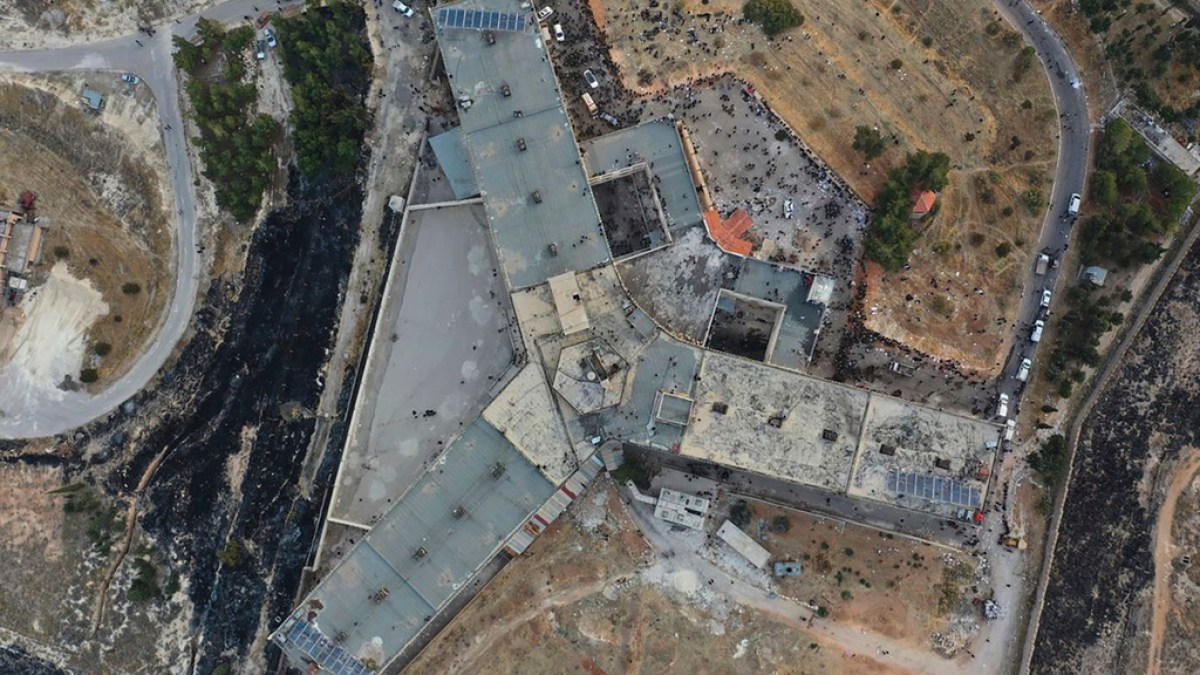The Syrian regime has collapsed. President Bashar al-Assad has left the country and Syrians are jubilant. Images of Syrians liberated from the torturous prisons that instilled fear for decades have given hope to many that their country is finally free from oppression.
For years now, Syrians have envisioned what their country would look like once the regime has collapsed. That day has come, and shaping the future of Syria is now a new terrain of contestation, hopefully a productive one.
It is far too early to be making declarations about what will happen next in Syria. There is room for both optimism and cynicism in the coming weeks and months. Syrians will be coming to terms with the tragedy of the last 13 years of war and 54 years of al-Assad family rule. At the same time, they will be establishing a transition process that lays the foundation for a new political system.
In doing so, Syria’s citizens and their transition leaders will be facing difficult questions about the future of the country. None are more important than how to seek accountability, justice, and restitution. Inevitably, how the future Syrian political leaders choose to approach these will reflect how the conflict is narrated and whether true reconciliation among Syrians will take place.
Although it is early to judge what form this process will take, Syria will most likely avoid following the Lebanese model. In the aftermath of Lebanon’s civil war, Lebanon’s leaders pursued a project of official amnesia where the war was narrated as caused by outside powers meddling in Lebanese affairs. Apart from Samir Geagea’s imprisonment, all the civil war’s militia leaders avoided any accountability for their actions during the war. In fact, many of them, such as Nabih Berri and Walid Jumblatt, remain members of parliament to this day.
The project of official amnesia absolved Lebanon’s militia leaders of responsibility for the war. Lebanese citizens were expected to continue their lives without seeking justice and closure.
Syria will no doubt be different as its new leaders are not simply recycled from the country’s past. There is a strong desire to hold Syria’s former regime officials accountable for the conflict through some judicial process. The challenge will be in balancing justice and accountability, on the one hand, and the inevitable demands for revenge, on the other. Any reconciliation process in Syria needs to account for this balancing act to ensure that the mechanisms of justice reflect reconciliation.
The recent amnesty extended by Hayat Tahrir al-Sham to conscripted soldiers suggests that the transition authorities will only target high-ranking officials within the military and regime for prosecution. This bodes well for any domestically driven reconciliation process, as it distinguishes between the regime’s decision-makers and everyday citizens who were a part of the army and bureaucracy.
We have seen how trials of former Syrian prison officials in Germany bring closure to many Syrians who simply wanted justice for the harm inflicted on them, their families, and their country. These forms of accountability can now be pursued inside the country, using Syrian legal and political mechanisms. This would necessitate new domestic laws to be passed and national tribunals to be set up.
At the same time, Syria’s transition leaders will be under immense pressure to accept international support to alleviate sanctions. This will come with a heavy price that could include international control over the reconciliation process.
We have seen that in the post-Cold War period internationally driven reconciliation processes often demand that countries in transition adopt the language and norms of the United Nations. This has created all sorts of problems in places like the former Yugoslavia or Rwanda where external intervention shaped how the reconciliation process unfolded.
International involvement may weaken Syrian citizens’ emotional investment in reconciliation. Syria, therefore, should seek to construct a transition and reconciliation process outside of the oversight of the UN and other international actors by embedding reconciliation mechanisms within the transition process.
This process should also try to address the question of restitution. One part of the regime’s conflict management strategies was to rob people of their properties and to transfer ownership to loyalists. As refugees and internally displaced people return, many will likely find their homes or properties occupied or claimed by others.
That is why, the new authorities will have to establish clear mechanisms for determining ownership to avoid tensions. This would involve finding mechanisms to resolve cases where documentation is missing and to determine which decisions by the previous authorities should be recognised and which should not be.
There are also many Syrian refugees who were stripped of their rights and were unable to pass citizenship to their children as the previous regime did not recognise any documentation not issued by its own authorities. This problem will also have to be addressed.
Another aspect of restitution is compensation for losses that civilians have sustained during the war. Many homes have been destroyed and looted and there is inconsistent access to key services, such as electricity. Infrastructure in many places has been decimated. There is so much destruction that compensation and reconstruction will be difficult to tackle, especially as the Israeli occupation in the south expands and Israeli bombardment continues.
How Syria’s new leaders account for the bureaucratic mess and reconstruction challenges will largely determine how people interpret the transition process.
We know from several other post-conflict or post-authoritarian cases that conflicts continue in people’s memories and stories. Syria will be no different. Whatever reconciliation and accountability path is pursued will lead to frustration among some Syrians. This is certain. Any mechanisms of accountability will thus need to be expansive and inclusionary and reflect the diversity of the Syrian experience of conflict since 2011.
The process will be arduous to be sure and it is an issue Syrians will be grappling with for years to come.
The views expressed in this article are the author’s own and do not necessarily reflect Al Jazeera’s editorial stance.











